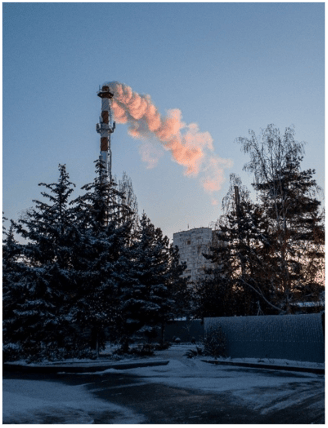After spending over 20 years in the cold Midwest winters and suffering through plant freeze ups, my mind is racing with what to look out for as things thaw back out. Please see my thoughts on instrumentation, dead legs, and a few other things to look out for based on my years of experience in the freezing weather.

Instrumentation: The dP/orifice instrumentation arrangements are notorious for freezing.
Time must be taken to ensure both high/low sides are thawed and free to get accurate measurements. This may sound simple enough, but there are things to watch for. Seal fluid in the tap lines is quite common in these arrangements. That is also the one item that may get purged out while the instrument is being thawed or freed up. Untrained operators, yes, I was one of them, may not realize the importance of this fluid. Their goal is to get the darn thing reading something. Down the road this could lead to heavy fluids or solids blocking either side of the tap and result in bad readings. Along with this, sometimes we must apply steam to tap lines to free them up, which can and will lead to small particles and solids that may disrupt the readings. Increasing the PM schedule on instrumentation for a month will aid in catching any deviations before they cause upsets in the operations. Separate from the dP instrumentation are those multiple independent switches. Make sure to get these checked as high level/pressure switches are an item I would be very concerned about. As I and six other survivors can tell you, a freeze up of one of these or damage from the freeze can cause a catastrophic event.
Dead legs: Hopefully this is not an issue, but dead legs are the ones that cause the surprises. The worst day from an operator standpoint is not the day it’s 20F, it the day it gets to 40F. That is when the surprises show up, leaking pipes, flanges, etc.…I cannot tell you how to fix these issues but what I would strongly encourage is every leak that occurs needs to be documented and tracked for long term solutions. The most frustrating thing is for re-occurring things to freeze every winter.
Tracing: Let’s hope the electric tracing worked, but if it didn’t, get people involved to evaluate the tracing. Too many times we underestimate just how cold it can get and end up with a system that was not correctly sized for temperature extremes. We are all realizing the extremes Texas can get to this month. Steam tracing freeze ups are really the more difficult issues. Damaged tracing must be repaired but be sure think about that damaged insulation that it just blew live steam into. Also, those traps hanging on the end of the tracing are notorious for either sticking open or fouling closed from debris. Again, I would recommend a steam tracing check quite frequently after freezing events.
Spare Equipment: You really need to check your spare equipment. Whether it’s a pump, filter, exchanger, etc., these items are typically in a stand-by mode. This means they have sat idle during the freezing conditions and don’t have the luxury of being warm from their service. Hot stand by pumps is the one we always watch out for. This is where that steam tracing check becomes so important. An unknown cold pump full of a cold viscous fluid trying to start can have grave consequences. Walk them down, check those pipes, and verify that all the standbys have not been compromised.
Summary: Again, we have just gone through an unprecedented cold snap that no one ever anticipated we would see this far south. In the Midwest, we were accustomed to it and developed procedures to prepare for these types of events to keep things operating safely. Everyone should remember that hurrying startups will lead to risks that should not be taken. Ensure anything that is found is documented so the reoccurrences can be minimized over time. It takes a lot of extra care to come out of this unprecedented freeze and stay safe.
